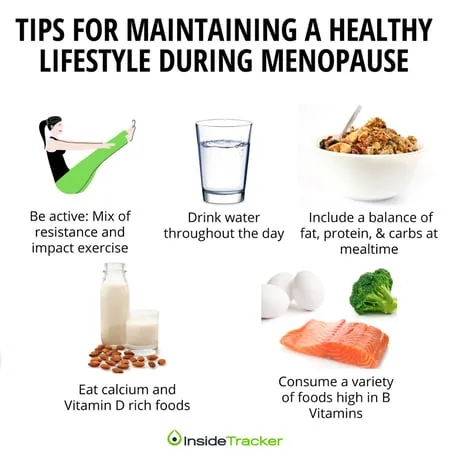Menopause is a natural phase in a woman’s life that marks the end of her reproductive years. It typically occurs in women between the ages of 45 and 55, with the average age of onset being around 51. During this time, a woman’s body undergoes significant hormonal changes, leading to symptoms such as hot flashes, night sweats, mood swings, and changes in libido.
Postmenopausal women are at an increased risk for certain health conditions, including osteoporosis, heart disease, and breast cancer. It is crucial for women in this stage of life to prioritize their health and well-being to prevent and manage these conditions. Here are 10 essential health tips for postmenopausal women to help them stay healthy and vibrant as they age.
1. Stay Active: Regular physical activity is crucial for maintaining overall health and preventing chronic diseases. Aim for at least 150 minutes of moderate-intensity exercise per week, such as walking, swimming, or cycling. Strength training exercises are also important for maintaining muscle mass and bone density.
2. Eat a Balanced Diet: A healthy diet is essential for postmenopausal women to maintain a healthy weight, prevent chronic diseases, and support overall well-being. Focus on eating a variety of fruits, vegetables, whole grains, lean proteins, and healthy fats. Limit your intake of processed foods, sugary drinks, and high-fat foods.
3. Get Regular Health Screenings: Regular health screenings are important for detecting and preventing health conditions that are common in postmenopausal women, such as osteoporosis, heart disease, and breast cancer. Talk to your healthcare provider about the recommended screenings for your age and risk factors.
4. Manage Stress: Menopause can be a stressful time for many women, as they navigate the physical and emotional changes that come with this phase of life. Find healthy ways to manage stress, such as meditation, yoga, deep breathing exercises, or spending time in nature.
5. Maintain a Healthy Weight: Excess weight can increase the risk of chronic diseases such as heart disease, diabetes, and certain types of cancer. Focus on maintaining a healthy weight through a combination of healthy eating and regular exercise.
6. Stay Hydrated: Drinking an adequate amount of water is important for overall health, especially as we age. Dehydration can lead to a variety of health issues, including fatigue, headaches, and digestive problems. Aim to drink at least eight glasses of water per day.
7. Get Plenty of Sleep: Sleep is essential for overall health and well-being, yet many postmenopausal women struggle with sleep disturbances such as hot flashes and night sweats. Create a bedtime routine that promotes relaxation and restful sleep, such as turning off electronic devices, practicing relaxation techniques, and keeping your bedroom cool and dark.
8. Practice Self-Care: Taking care of yourself is essential during menopause, as your body undergoes significant changes. Practice self-care activities that bring you joy and relaxation, such as reading a book, taking a bath, or spending time with loved ones.
9. Limit Alcohol and Caffeine: Excessive alcohol and caffeine consumption can have negative effects on your health, especially during menopause. Limit your intake of these substances to promote better overall health and well-being.
10. Stay Connected: Maintaining strong social connections is important for overall health and well-being, especially during menopause. Stay connected with friends, family, and community groups to stay active and engaged.
FAQs:
Q: What are the symptoms of menopause?
A: Menopause symptoms can vary from woman to woman but may include hot flashes, night sweats, mood swings, vaginal dryness, and changes in libido.
Q: How can I manage hot flashes naturally?
A: There are several natural remedies that may help manage hot flashes, including wearing lightweight clothing, staying cool, practicing deep breathing exercises, and avoiding triggers such as spicy foods and caffeine.
Q: Do I need to take hormone replacement therapy during menopause?
A: Hormone replacement therapy may be recommended for some women to manage severe menopausal symptoms, such as hot flashes and vaginal dryness. Talk to your healthcare provider about the risks and benefits of hormone replacement therapy for your individual situation.
Q: Can menopause increase my risk of heart disease?
A: Yes, menopause is associated with an increased risk of heart disease due to changes in hormone levels and other factors. It is important for postmenopausal women to prioritize heart-healthy habits, such as eating a healthy diet, staying active, and getting regular health screenings.
Q: How can I prevent osteoporosis during menopause?
A: Osteoporosis is a common concern for postmenopausal women due to the decline in estrogen levels. To prevent osteoporosis, focus on eating a calcium-rich diet, getting regular exercise, and taking vitamin D supplements as needed.
In conclusion, menopause is a natural phase in a woman’s life that comes with significant changes in hormone levels and health risks. By following these essential health tips for postmenopausal women, you can prioritize your health and well-being as you navigate this phase of life. Remember to stay active, eat a balanced diet, get regular health screenings, manage stress, and practice self-care to stay healthy and vibrant as you age.


